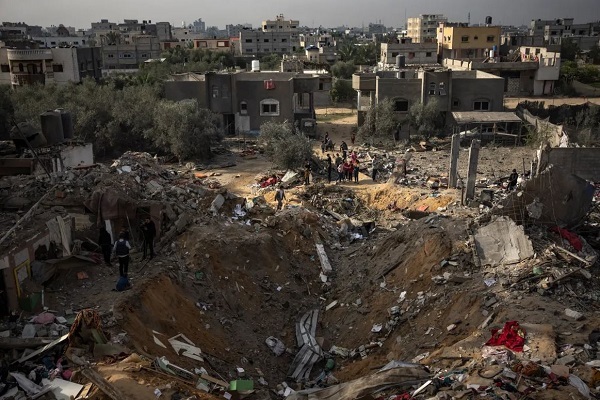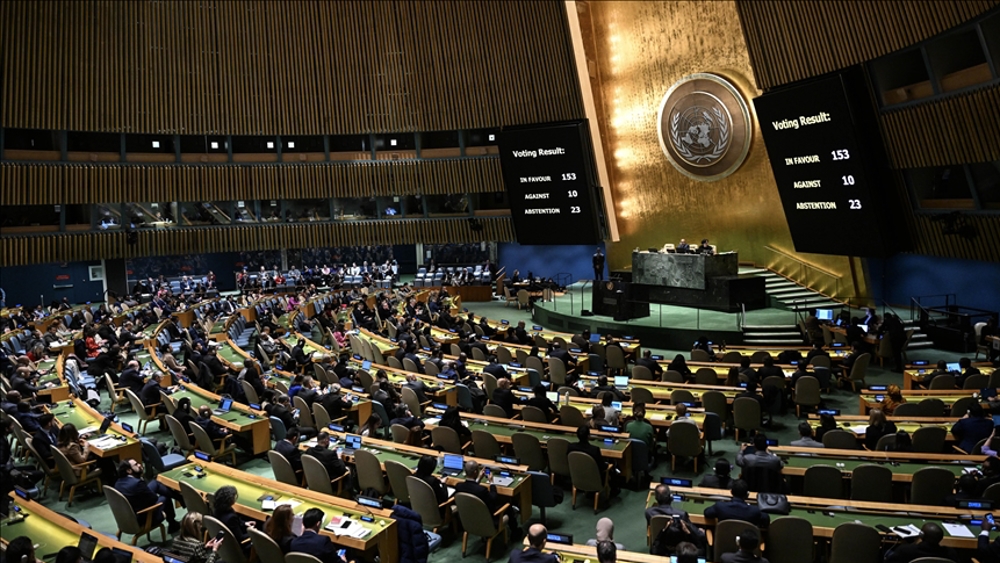UNGA Resoundingly Backs Call for Gaza Ceasefire Despite US Opposition

The resolution, which is not legally binding but reflects global opinion, was supported by 153 members, opposed by 10, including Israel and the United States, and abstained by 23.
The resolution comes as Gaza faces a humanitarian catastrophe, with more than 18,000 Palestinians killed, mostly women and children, and over 80 percent of the 2.3 million population displaced by the Israeli attacks.
The Israeli siege and air strikes have also cut off access to food, fuel, water and electricity, creating what UN officials have called “hell on earth”.
The resolution follows a failed attempt by the UN Security Council (UNSC) to pass a similar resolution on Friday, which was vetoed by the US, the only country to vote against it. The UK abstained from the vote.
The UNSC resolutions are legally binding, unlike the UNGA ones, however, the Israel regime has even ignored the UNSC resolutions in the past.
After the US veto, UN Secretary-General Antonio Guterres invoked Article 99 of the UN Charter, which allows him to warn about serious threats to international peace. The last time the option was used goes back to 1971.
Read More:
The US also opposed the UNGA resolution, claiming it was biased and did not condemn the Hamas operation on October 7. The Israeli casualties in the Hamas attack were 1,200, according to official figures
Palestinian UN Ambassador Riyad Mansour described the General Assembly vote as a culmination of international public sentiment, and said the US could not continue "to ignore this massive power."
"It is our collective duty to continue on this path until we see an end to this aggression against our people, to see this war stopping against our people. It is our duty to save lives," he told reporters.

Egyptian UN Ambassador Osama Abdelkhalek called the draft resolution “balanced and neutral,” noting that it called for the protection of civilians on both sides and the release of all captives.
The administration of US President Joe Biden has firmly supported Israel’s military campaign, arguing that it must be allowed to dismantle Hamas.
But as Israeli forces level entire neighbourhoods, including schools and hospitals, the US has found itself increasingly at odds with international opinion.
Read More:
In remarks on Tuesday, however, Biden sharpened his criticism of the US ally, saying that Israel was losing international support due to “indiscriminate bombing” in Gaza.
The US, which has strongly criticised Russia for similar actions in Ukraine, has been accused of employing a double standard on human rights.
“With each step, the US looks more isolated from the mainstream of UN opinion,” Richard Gowan, the UN director at the International Crisis Group, an NGO, told Reuters.
Washington has also provided Tel Aviv with more than 10,000 tons of military equipment since the latter began the war on Gaza on October 7 in response to an operation staged by the Palestinian territory's resistance groups.
Source: Agencies



